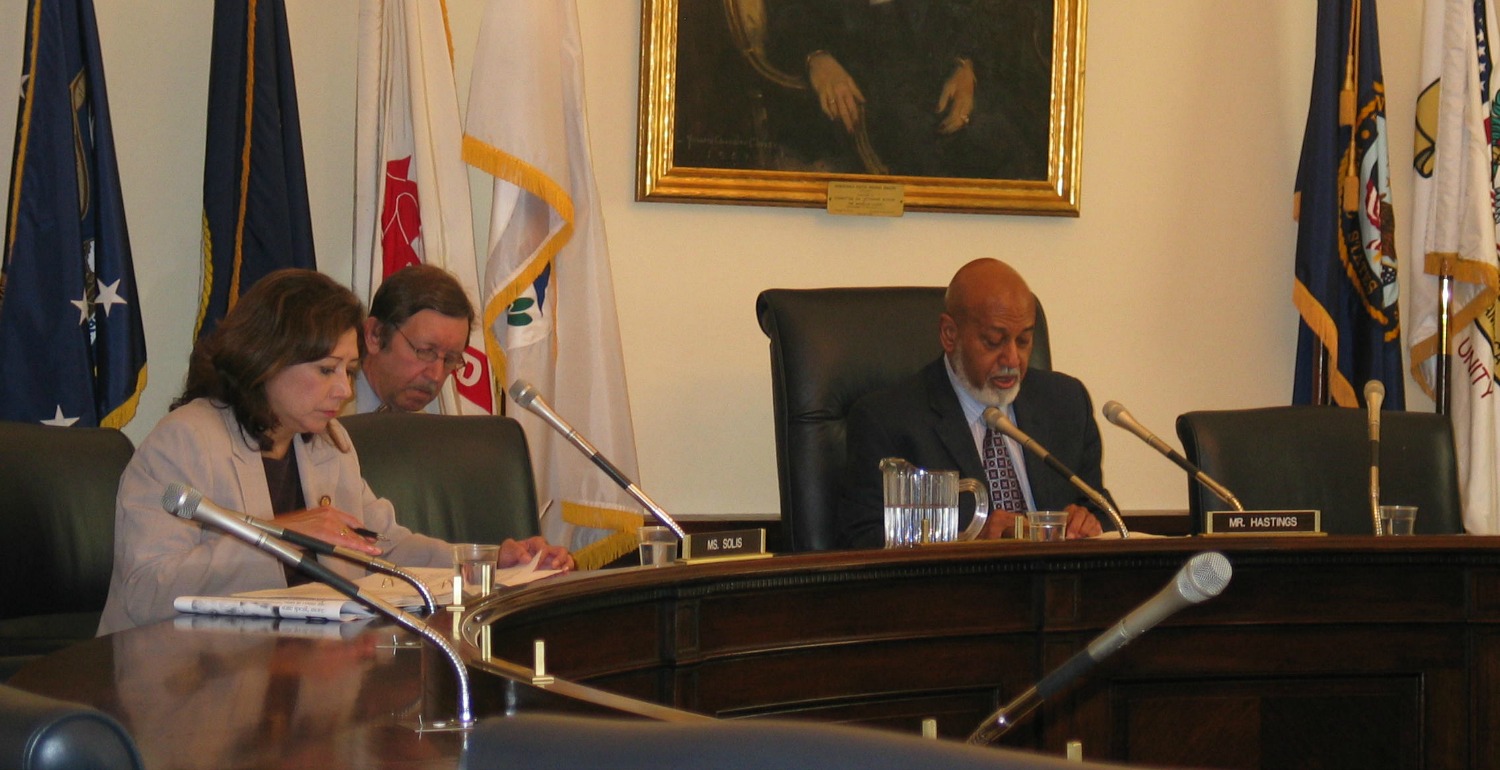The hearing focused on trends regarding freedom of the media in the Organization for Security and Cooperation in Europe (OSCE) participating States, including developments in Russia, Kazakhstan, Azerbaijan, and Turkey. In particular, the hearing highlighted the fact that journalists continue to face significant challenges in their work in numerous OSCE countries, such as acts of intimidation, abduction, beatings, threats or even murder.
Members
Relevant Issues
Relevant Countries
Leadership

Helsinki Commission Ranking Member Cohen Celebrates ...
Aug 01, 2024WASHINGTON—Congressman Steve Cohen (TN-9), the Organization for Security and Cooperation in Europe’s 56-nation Parliamentary Assembly’s Special Representative on Political Prisoners, today welcomed news that three journalists and Paul Whelan, wrongly […]

Vladimir Kara-Murza: Putin’s Personal Prisoner
Sep 20, 2023Stream here: HEARING: Vladimir Kara-Murza: Putin’s Personal Prisoner – YouTube Vladimir Kara-Murza, a father, husband, and a freedom fighter, has been in detention for over five hundred days and is currently […]
Helsinki Commission Leadership Celebrate Pardon of N...
Jun 23, 2023Washington—Today, the Chairman and Ranking Member of the Commission on Security and Cooperation in Europe, also known as the U.S. Helsinki Commission, Representative Joe Wilson (SC-02) and Ranking Member Steve […]
HELSINKI COMMISSION SENDS APPEAL TO GEORGIAN PRESIDE...
Apr 28, 2023WASHINGTON— The leadership of the Commission on Security and Cooperation in Europe, also known as the U.S. Helsinki Commission, Chairman Representative Joe Wilson (SC-02), Co-Chairman Senator Ben Cardin (MD), and […]
Congressmen Cohen and Wilson Introduce Resolution Re...
Oct 28, 2022WASHINGTON – Congressman Steve Cohen (TN-09), Co-Chairman of the Commission on Security and Cooperation in Europe, also known as the Helsinki Commission, and the Commission’s Ranking Member, Congressman Joe Wilson […]
Helsinki Commission Slams Shutdown of Novaya Gazeta
Sep 08, 2022WASHINGTON—Helsinki Commission Chairman Sen. Ben Cardin (MD), Co-Chairman Rep. Steve Cohen (TN-09), Ranking Member Sen. Roger Wicker (MS), and Ranking Member Rep. Joe Wilson (SC-02) today condemned the shutdown of […]
Co-Chairman Cohen Calls for the Release of Political...
Aug 09, 2022Washington – On the second anniversary of the sham presidential election in Belarus, the Helsinki Commission Co-Chairman and OSCE PA Special Representative on Political Prisoners Rep. Steve Cohen (TN-09) issued […]
CO-CHAIRMAN COHEN APPOINTED AS OSCE PARLIAMENTARY AS...
Jul 21, 2022WASHINGTON—Margareta Cederfelt, President of the OSCE Parliamentary Assembly (PA), has appointed Helsinki Commission Co-Chairman Rep. Steve Cohen (TN-09) as the first-ever OSCE PA Special Representative on Political Prisoners. “I welcome […]
Helsinki Commission Slams Legislation in Belarus tha...
May 20, 2022WASHINGTON—Following the approval of legislation in Belarus that would apply the death penalty to pro-democracy activists and those opposing Russia’s war in Ukraine, and ahead of the May 21 commemoration […]
Chairman Cardin, Colleagues Introduce Resolution Cal...
May 16, 2022WASHINGTON—Helsinki Commission Chairman Sen. Ben Cardin (MD), author of the Global Magnitsky Human Rights Accountability Act, and colleagues introduced a resolution Monday honoring Russian opposition leader Vladimir Kara-Murza and his […]
Helsinki Commissioners Lead Bipartisan Ask for Biden...
May 12, 2022WASHINGTON—U.S. Senator Ben Cardin (MD), author of the Global Magnitsky Human Rights Accountability Act and Chair of the Commission on Security and Cooperation in Europe (Helsinki Commission), along with Helsinki […]


